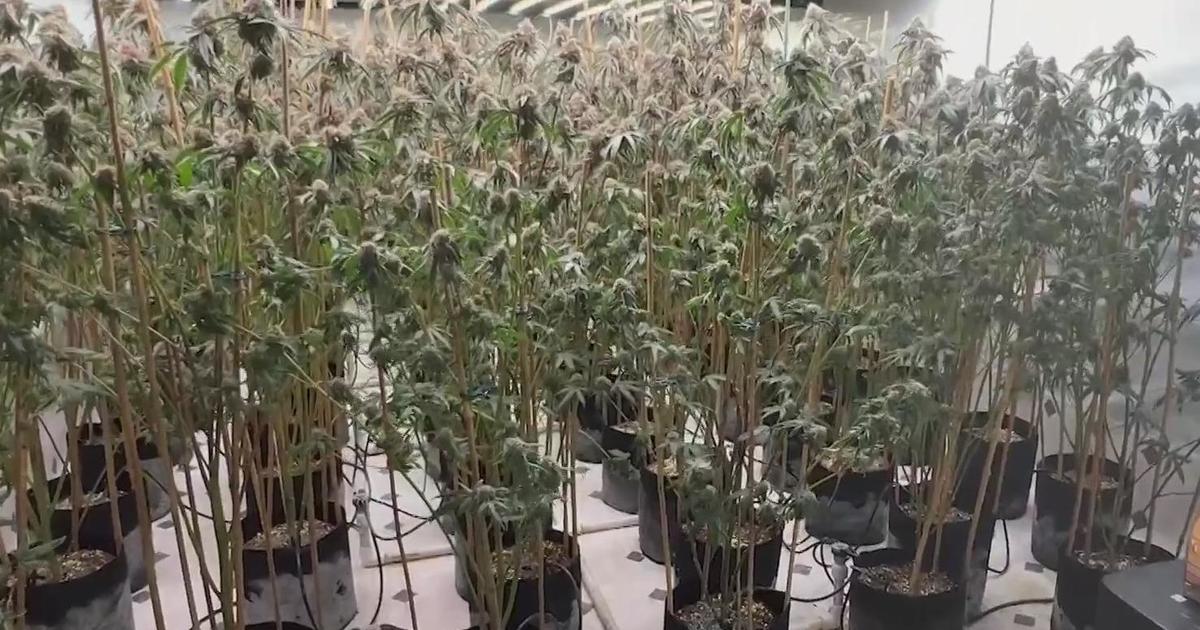Coronavirus Update: 'Deplorable' SF Tenderloin Conditions Prompt Lawsuit By UC Hastings, Business Owners, Residents
SAN FRANCISCO (CBS SF) -- Citing the San Francisco Tenderloin District's "deplorable conditions" and the threat of a massive COVID-19 outbreak, local business owners along with UC Hasting College of the Law and individual residents filed a lawsuit Monday asking a judge to order the city to clean-up the neighborhood, including removing a growing sidewalk homeless encampment.
San Francisco city officials said they were evaluating the lawsuit, but called it "unfortunate."
"The City Attorney's Office will evaluate the lawsuit once we have been served with it," city officials said in a release. "The City's Emergency Operations Center has developed a detailed draft plan to address the situation in the Tenderloin, including block-by-block analysis. The City is gathering community feedback on the plan today."
"It is unfortunate that UC Hastings chose to go to court rather than allow that community process to proceed and produce a final plan, which will be issued this week. The Emergency Operations Center will continue to finalize the plan, and we invite these plaintiffs to join their neighbors and participate in that process."
According to the lawsuit, the sidewalk encampment has grown from from 158 makeshift dwellings on March 3rd to 391 on May 1 during the coronavirus outbreak and shelter-in-place. "Sidewalks in the Tenderloin are now packed with tents, some of which contain as many as six individuals," the lawsuit contends.
The suit alleges that by allowing sidewalks in the Tenderloin to be taken over by drug sales, crowds of drug users and homeless tent encampments, the city is threatening the health and lives of Tenderloin residents and helping drive merchants out of business.
"Even before the onset of the COVID-19 pandemic, the de facto policy of the City and County of San Francisco to use the Tenderloin community as a containment zone had resulted in a dramatic decline in the livability and safety of the neighborhood," the complaint states. "The deplorable conditions tolerated by the City in the Tenderloin are not permitted in other neighborhoods in San Francisco."
UC Hastings College, which has several facilities in the Tenderloin District, says it has spent nearly $70,000 on increased security in the first month of the COVID-19 public health order along with an extra $2,100 a week in cleaning services such as power-washing and trash pickup around its facilities, according to the complaint.
"Litter and used needles are found every day around the Hastings parking garage. Human feces and urine are found in the doorways," Hastings said in the complaint. "Staff have to escort the homeless out of the garage regularly. Thieves break into cars."
The school says its and students and faculty fear for their safety while manuevering around the open-air drug used and dealing outside their buildings and that students who decline offers of admission to Hastings often cite the neighborhood as a significant factor in their decisions.
The Tenderloin Merchants and Property Association, along with an SRO hotel manager, a restaurant owner and two Tenderloin residents are also named as plaintiffs in the lawsuit.
The lawsuit alleges the city has violated the plaintiffs' rights to equal protection and due process under the U.S. constitution, as well as violated the Americans with Disabilities Act and allowed public and private nuisances, among other allegations.
Victoria Fallon, manager of the Pierre Hotel on 540 Jones, said in the complaint that tenants of the hotel - many who are elderly or have underlying health conditions - can't safely venture outside the hotel to go buy food.
Rene Denis, co-owner of Soluna Cafe and Lounge at 272 McAllister Street, alleged in the complaint that there has been a drastic change in the sidewalk conditions since the emergency shelter-in-place order, with a line of tents obstructing the sidewalk near the entrance of his restaurant. Denis said many of the people living on the street near his restaurant urinate, defecate, and throw used syringes and trash on the street and have threatened passers-by with violence.
One of the residents suing the city claims that he cannot get around on his wheelchair because many of the sidewalks are completely blocked by homeless persons or drug users and many of the people living and congregating on the sidewalks refuse to get out of the way.
The suit also claims the cluttered living conditions pose the threat of a massive COVID-19 outbreak.
"Hastings officials are deeply concerned that a significant portion of the homeless population in the Tenderloin—who have never been tested and who lack the resources to comply with the public health guidance of sheltering in place, practicing social distancing, washing hands, and wearing face coverings—may have COVID-19, posing a greater risk to all Tenderloin residents and inviting a general spread of the virus," the suit alleged. "Despite the high risk of infection and other dangers posed to residents in the neighborhood and beyond, the City has yet to implement widescale testing for people living on the streets."
More than 20,000 people are permanent residents of the Tenderloin, including 3,000 children. It has the highest per capita concentration of children of any neighborhood in San Francisco.
"The Tenderloin's residents consist primarily of low-income and working class individuals, senior citizens, disabled people, and families with children," the plantiffs wrote.
But the business owners claim the neighborhood has been in a rapid decline since 2019 and the conditions are a threat to the health and safety of local residents.
"The homeless population, which has long been present in the Tenderloin, swelled," the lawsuit states. "According to a 2019 study conducted by Applied Survey Research, the homeless count in San Francisco increased by almost 20% over the four years from 2015 to 2019, with most of that growth occurring over the last two years."




